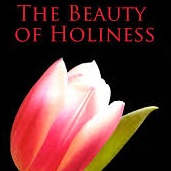By Brent Coltharp
Few terms included in the Holy Writ, if any, have been at the center of continued controversy as frequent as the term `holy’ and all of its derivatives. Yet, Scripture is replete with its usage. In fact, the Word of God instructs us to worship in the beauty of holiness (1 Chr. 16:29; Ps. 29:2, 45:11, 96:9). This inspired statement identifies that holiness should not only be desired, it should be recognized as beautiful.
While not an exhaustive definition, for the purposes of this article we will define the pursuit of holiness and sanctification as the process of separating ourselves from spiritual darkness and joining ourselves to the light of truth. John informs his readers “that God is light and in Him is no darkness at all” (1 John 1:5). He would further emphasize that if we claim to have fellowship with God, yet we are walking in darkness, we are lying and not practicing the truth (1 John 1:6). In this same vein, Peter taught that God calls people out of darkness into His marvelous light (1 Peter 2:9). Light and darkness are “contrary to one another” (Galatians 5:17).
It is common for believers to celebrate the initial call of God upon their lives, when He called us out of darkness into His marvelous light. However, if we are not careful, we will not follow through with the call of God. Instead of leaving the darkness that we have been called out from, we continue to camp in the shadows, content to live in a perpetual dawning of light and not in the bright light of the noonday. This can be
of the Spirit, yet they stall out in their living for God, never leaving the elementary principles of Christ and going on into perfection. Rather, they continue to lay again the foundation of repentance from dead works and of faith toward God (Hebrews 6:1).
The call to worship God in the beauty of holiness does contain an implicit negative in the context of forsaking the works of flesh; we are to leave the darkness behind. However, the reason that many individuals never experience the power of living for God and walking in the power of the Spirit is that they have never identified and embraced the positive pole of living for God. Just as fervently as one flees darkness, one must actively pursue life in the Spirit. Peter reminds his readers that there is more to living for God than laying aside the immoral things of this world; we should, just as actively, add to our faith: virtue, knowledge, self-control, perseverance, godliness, brotherly kindness and love. (2 Peter 1:5-7). Likewise, Paul instructs the Galatians that they should not only refrain from the works of the flesh, they should live and walk in the Spirit where its fruit will be produced in their lives (Galatians 5:19-26). The one who diligently pursues the light in this manner will discover an exciting, overcoming and fruitful life. Holiness is beautiful!



